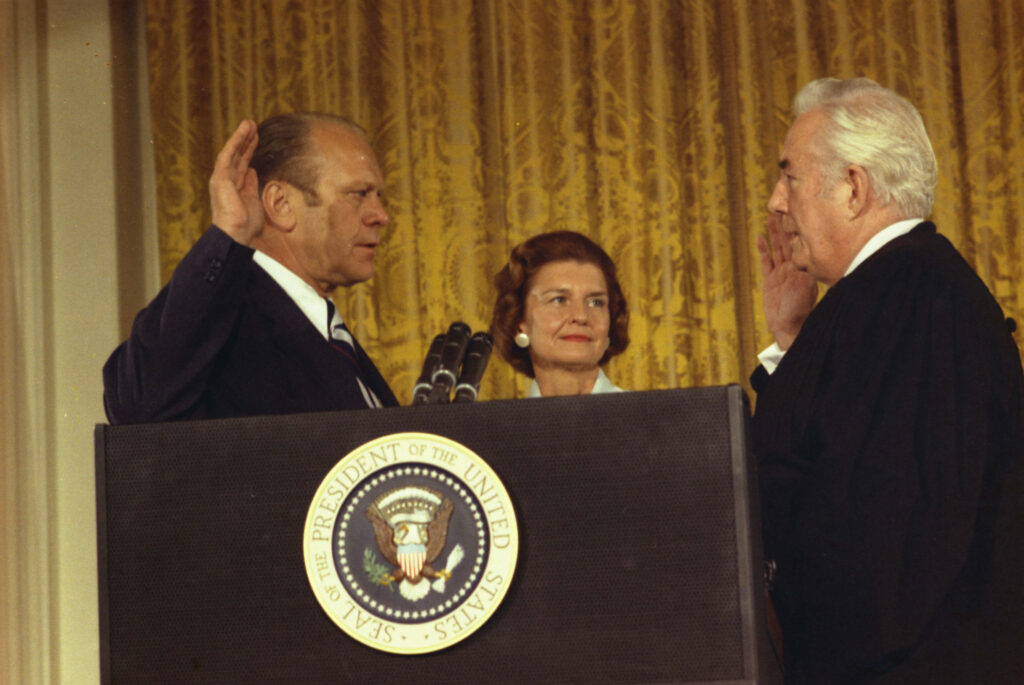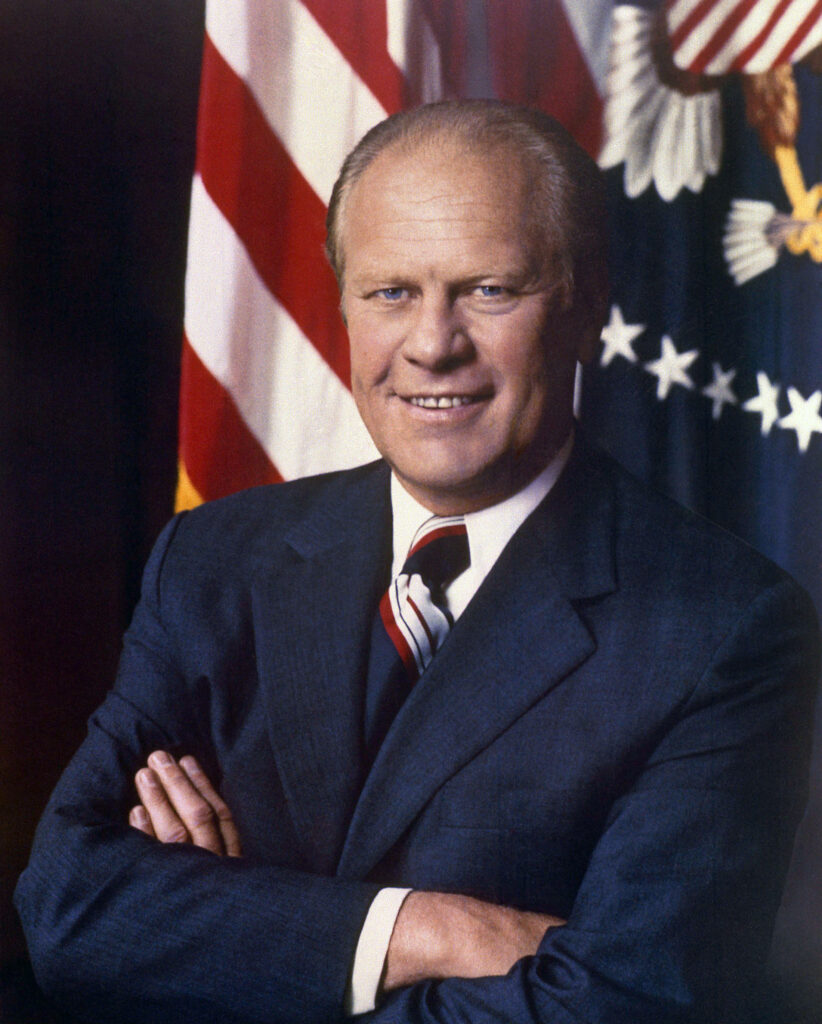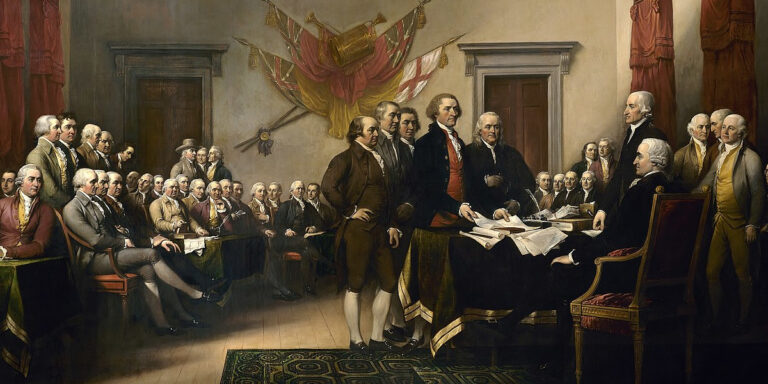Our Only Commander-In-Chief Never Elected President or Vice-President
The date was August 9, 1974 — 50 years ago today — when Gerald R. Ford was sworn in as the 38th President of the United States. Ford’s ascension to the Oval Office came amidst a period of tremendous turmoil and upheaval, as he assumed the presidency in the wake of the Watergate scandal that had led to the resignation of his predecessor, Richard Nixon.
Ford’s path to the presidency was an unlikely one. He had served as a Congressman from Michigan for over 25 years before being appointed Vice President in 1973 after Spiro Agnew resigned. When Nixon himself resigned the following year, Ford found himself thrust into the highest office in the land, tasked with healing a deeply divided nation.
In his inaugural address, Ford struck a tone of reconciliation and unity, declaring “My fellow Americans, our long national nightmare is over.”
Ford immediately acknowledged the gravity of the situation, stating “I assume the Presidency under extraordinary circumstances…This is an hour of history that troubles our minds and hurts our hearts.”
Ford had no personal involvement in the Watergate scandal, and he declared that his primary focus would be on moving the country forward. He promised to uphold the “integrity of the office” and to work tirelessly to regain the trust of the American people.
One of Ford’s first major acts as president was to pardon Nixon, a highly controversial decision that was met with considerable backlash. Many saw it as an effort to sweep the Watergate affair under the rug and prevent a full reckoning. However, Ford defended the pardon as a necessary step to promote “healing” and allow the nation to move on.
Despite the initial controversy, Ford’s presidency was marked by a concerted effort to restore stability and confidence in the federal government. He pushed for a number of domestic initiatives, including measures to combat inflation and promote economic growth. He also worked to rebuild relationships with allies abroad that had been strained during the Nixon era.

While Ford’s presidency was relatively short-lived, lasting just over two and a half years, his legacy has endured. He is often remembered as a humble, honest, and pragmatic leader who stepped into an incredibly challenging situation with poise and integrity.
In the decades since, Ford’s role in stabilizing the country during a period of deep turmoil has been increasingly recognized and celebrated. Many have come to view his presidency as a necessary bridge between the tumultuous final years of the Nixon administration and the relative calm and restoration of public faith that marked the Carter and Reagan eras.
* * * * * * * * * * * * * * * * * * * * * * * *
So there you have it. Fifty years ago today, Gerald Ford’s ascension to the presidency on August 9, 1974 was a pivotal moment in American history. He was responsible for steering the country through one of its darkest chapters. His steady hand and commitment to healing a divided nation laid the groundwork for a more stable and functional federal government in the years that followed.
By Steven Roberts




